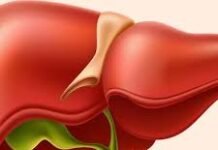May 27,2025 FACT RECORDER
Brightly coloured packets of snacks and sugary drinks often promise “energy,” “strength,” or “natural” ingredients. But inside, these products usually contain high levels of sugar, salt, unhealthy fats, artificial colours, and chemical additives. Known as ultra-processed foods (UPFs), these items are engineered to be addictive and have little to no nutritional value.
India’s growing consumption of such junk food is linked to rising rates of obesity, diabetes, heart disease, and even cancer—often affecting younger populations. With a booming junk food market growing over 13% annually, health experts warn of the serious risks posed by regular consumption of UPFs.
The Supreme Court recently urged the government to implement clear front-of-pack labelling within three months, emphasizing that consumers—including parents—are often unaware of the unhealthy contents in popular products like Kurkure and Maggi.
Unlike basic food processing methods such as grinding or fermenting, ultra-processed foods are industrially produced with additives to enhance flavour, shelf life, and appeal, while lacking essential nutrients like fibre, protein, vitamins, and minerals. Common junk foods include chips, biscuits, instant noodles, sugary drinks, and flavoured yogurts.
Aggressive marketing tactics often mislead buyers with claims like “baked, not fried” or “made with real fruit,” using bright colours, cartoon characters, and celebrity endorsements, masking the true levels of sugar, salt, and fats.
Public health experts recommend consumers scrutinize ingredient lists, avoid products with high sugar, saturated fat, or sodium, and prioritize home-cooked meals rich in fruits, vegetables, whole grains, pulses, and nuts. Parents should educate children about the difference between real food and packaged snacks.
Consumers have the right to clear, upfront information about food contents to make informed choices. As the saying goes, “Packet ke andar kya hai?” — what’s inside the packet matters most.













